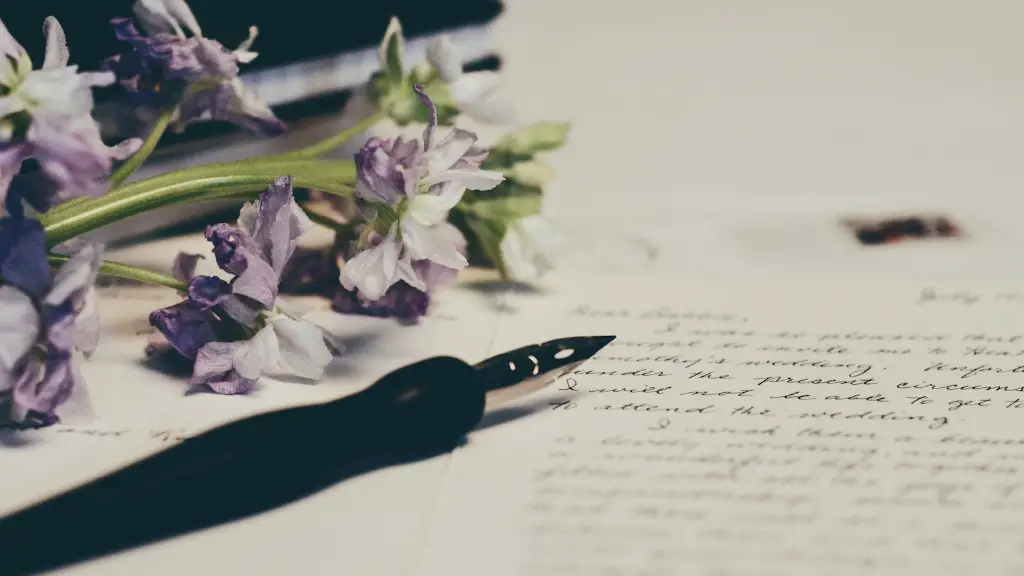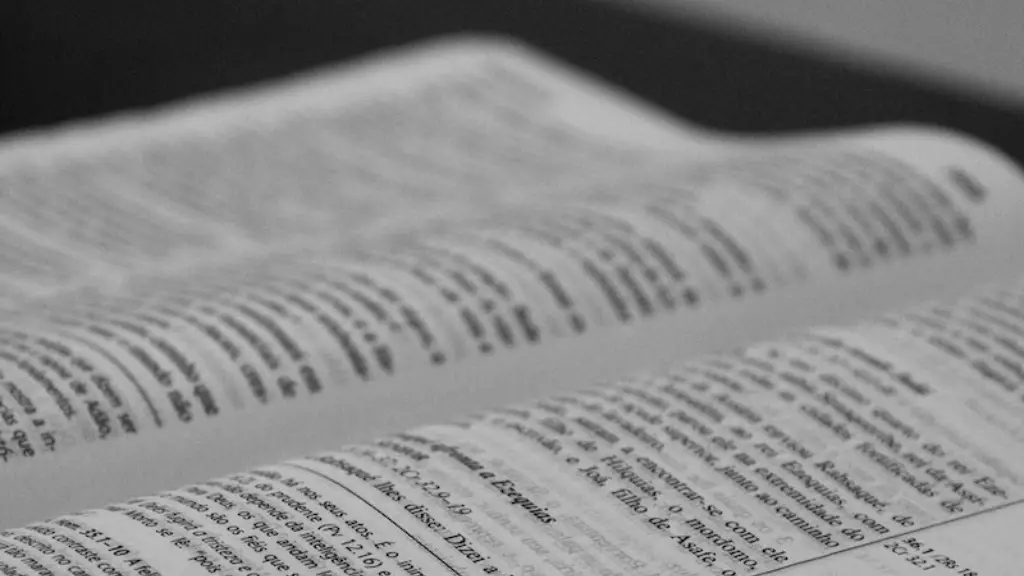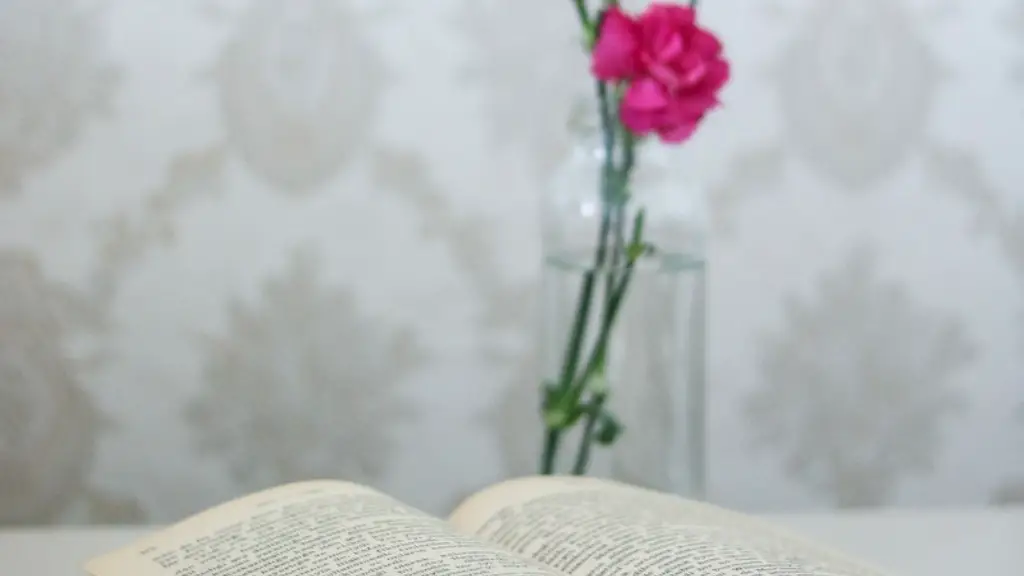Bucolic poetry dates back to the Ancient Greek and Roman era, when the great shepherds often wrote of their love for nature and of the hardy life of their work. This type of literature has remained a constant source of inspiration for poets and other romantic authors throughout the centuries, as its idealised landscapes provide a refuge for romance and nostalgia. Bucolic poetry has also served as a great source of inspiration for many modern authors, as its themes and images are still as relevant today as they have ever been. In this article, we’ll explore what it is to be a bucolic poet, and how and why the genre has remained so popular for so long.
At its core, the bucolic genre of poetry is defined by its focus on the beauty and pastoral life of nature in the countryside, and its descriptions of the typical rural way of life. This pastoral theme is evident in the romanticised description of country life, often accompanied by imagery of nature, the passing of the seasons, and scenes of life on farms and in the pastures. Bucolic poetry celebrates the unsophisticated yet joyful lifestyle of the rural countryside, and offers a lens in which to view nature in all its beauty.
By celebrating the joys of nature and the rhythms of rural life, bucolic poetry has long served as a refuge for romantic sentiment and nostalgia. The genre’s emphasis on lyrical language and imagery in order to create a vivid and emotive atmosphere through which to express these sentiments makes it popular to this day. Through its description of the charms of nature and the simple beauty of rural life, bucolic poetry captures a certain reverence for the pastoral lifestyle.
Though bucolic poetry often focuses on the beauty and idyllic happiness of nature, the genre also recognises and acknowledges the struggles associated with rural life. Bucolic poets recognise the harshness and unfavourable conditions that can sometimes be a part of country living, such as the dangers of storms and hailstones, or the death of a beloved animal. By mixing beauty and hardship, bucolic poets are able to tell a realistic but still emotive story, providing inspiration to readers and an escape from the trials and tribulations of the present world.
Today, the genre of bucolic poetry is just as popular as it has ever been. As the rural idyll is celebrated by modern authors and poets alike, the genre’s themes and imagery continue to captivate readers of all ages. In an age of technology and modernity, its celebration of nature, tradition, and the rural way of life provides a timeless message of beauty and hope. As such, bucolic poetry serves as a reminder of the joys of the countryside and a way to escape to a simpler, more peaceful time.
Influential Bucolic Poets
Throughout its long existence, bucolic poetry has been shaped by many great writers and poets. Among the most influential authors of the genre are the two great 19th century writers, John Clare and Thomas Hardy. Hardy’s great poem, ‘The Darkling Thrush’ is an often-read example of bucolic poetry, whilst Clare’s writing has heavily focused on the rustic life of rural England.
Going back a century further, we find the great William Wordsworth, who is widely regarded as the pioneering author of bucolic poetry. His poem, ‘The Daffodils’, demonstrates a move away from the urban towards the rural in poetry, and the romantic imagery and celebration of nature evident in the poem is a trait that is present in many bucolic works today.
Bucolic poetry has also inspired works outside of poetry, as found in the numerous operas and musical compositions inspired by bucolic themes. Notable examples of these include the operetta, ‘The First Shepherds’, by Joseph Haydn, and Antonio Vivaldi’s ‘Pastoral Symphony’. Many of these works provided the foundations for bucolic operas and ballets throughout the 20th century.
Modern Expression of Bucolic Poetry
In modern times, the bucolic tradition is as strong as ever. Themes of nature, romance and nostalgia are all present in literature and art, with modern authors incorporating elements of the bucolic genre into their work in order to evoke a certain atmosphere. Additionally, rural life remains a source of inspiration for many modern authors, with a return to the themes of nature and tradition.
In music, artists like Will Varley examplify modern bucolic songwriting, whilst today’s poets like W. S. Merwin and Mary Oliver have included bucolic themes in their work. The bucolic genre has also been used to great effect by acclaimed playwrights, such as in the works of Tennessee Williams and Arthur Miller. Such modern adaptations of bucolic themes provide a meaningful way of interpreting and expressing the beauty and hardships of rural life.
Today, bucolic poetry continues to captivate readers and writers alike. Its themes and images remain as relevant today as they ever were, and its celebration of the country lifestyle is a timeless message of peace and nostalgia. There is no doubt that the genre’s influence will remain strong in the years to come.
Presence of Bucolic Poetry in Visual Media
Bucolic poetry has also been adapted to various visual media. Numerous films and television dramas have been made with bucolic themes, as the genre allows directors to capture the beauty of rural life and express its conflicts and triumphs. Such works often use bucolic lyrics or music to create a certain atmosphere and establish a connection with the audience.
In recent years, there has been an increased focus on bucolic poetry in visual media, with many directors viewing the genre as an effective way of conveying atmosphere and emotion in their works. Wes Anderson’s 2014 film ‘The Grand Budapest Hotel’ is an example of this, as the use of rustic imagery and a bucolic soundtrack helps to evoke an atmosphere of nostalgia and sentiment. Even today, bucolic poetry provides an emotive means of expression through visual media.
Themes and Messages in Bucolic Poetry
At its core, bucolic poetry celebrates the beauty of nature and the simple joys of life. Through its lyricism and imagery, it captures the atmosphere and emotion of nature, and its celebration of rural life is a timeless narrative of peace and nostalgia. The genre is also known for its realistic depiction of rural life in both its beauties and hardships.
Bucolic poets recognise the importance of the pastoral lifestyle and its associated traditions, and their celebration of country ways, nature, and the cycle of the seasons are themes which are still relevant today. Additionally, the genre’s focus on the appreciation of nature and its depiction of the rural world provide a retreat from the fast- pace of urban life, and a chance to admire the simple beauty of the country.
Evolution of Bucolic Poetry across Different Countries and Cultures
Whilst the bucolic genre originated in Greco-Roman literature, it has since been adapted and transformed into many different forms in other countries. In France for example, bucolic poetry has been adapted and transformed into a genre of more traditional lyrical literature, with great poets such as Guillaume Apollinaire and Paul Valéry fusing elements of the genre with a more contemporary aesthetic. This tradition of experimental bucolic poetry is still present in the work of modern French authors.
In Russia and other Eastern European countries, bucolic poetry encompasses works which focus on the land itself, with poems and novels which celebrate the beauty and hardships of rural life in the Russian countryside. Furthermore, in the Caribbean and Latin America, the bucolic genre has been adapted to include a more tropical aesthetic, as authors examine the beauty and romance of the region’s nature and traditional ways of life.
Conclusion
Bucolic poetry is a timeless genre with roots dating back to the Ancient Greeks and Romans. Its celebration of the rustic lifestyle and reverence for natural beauty have ensured its presence in literature and art throughout the centuries, and its combination of beauty and hardship provide an emotive escape for modern readers. Today, bucolic poetry remains just as popular as ever, as its timeless messages of nostalgia and romance are increasingly relevant in an ever-changing and modern world.




